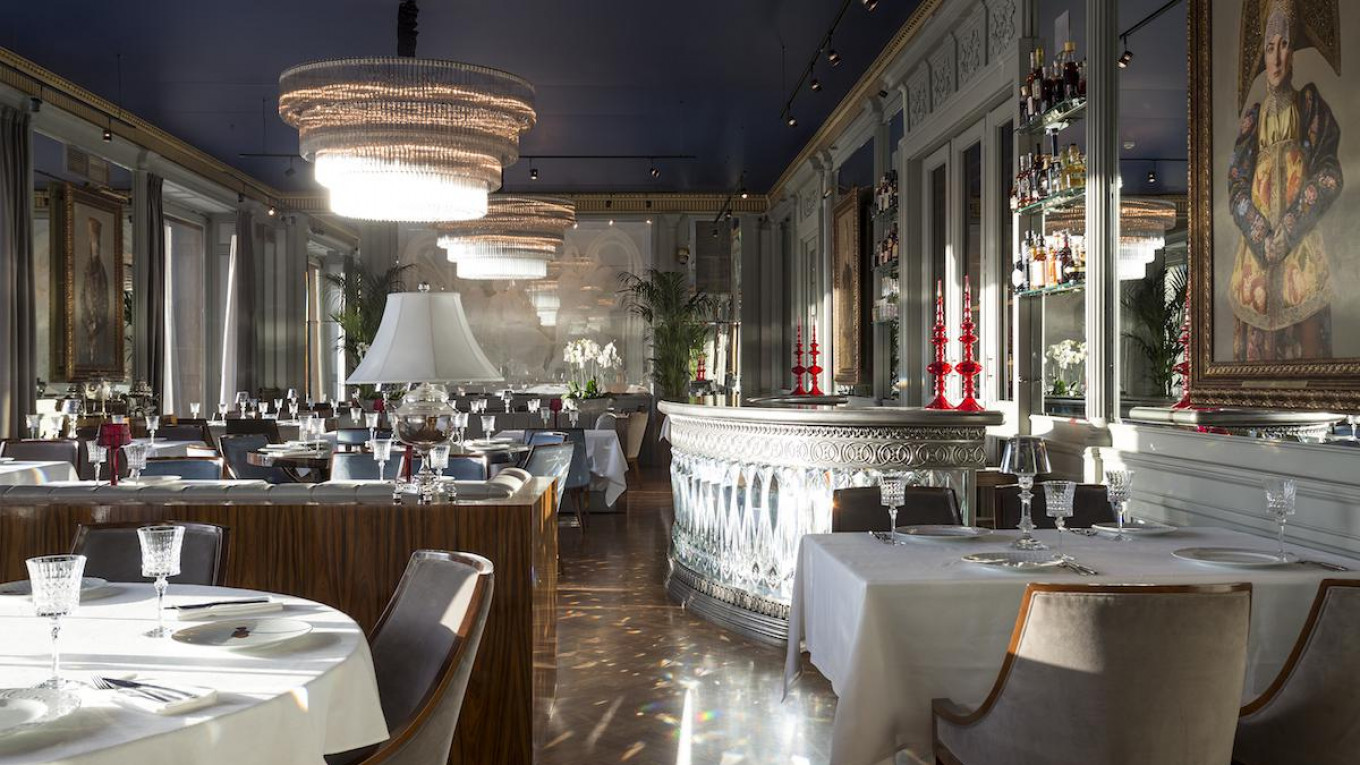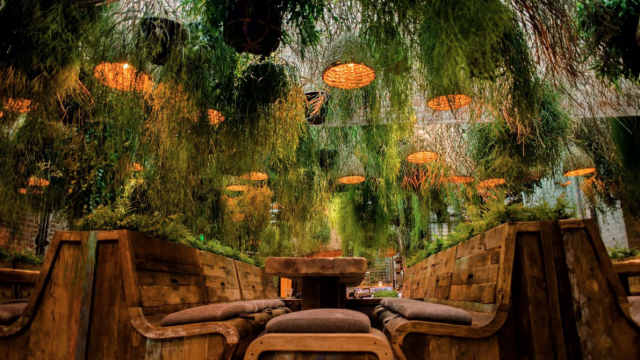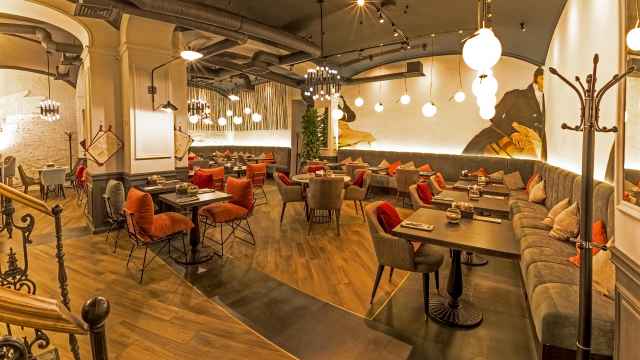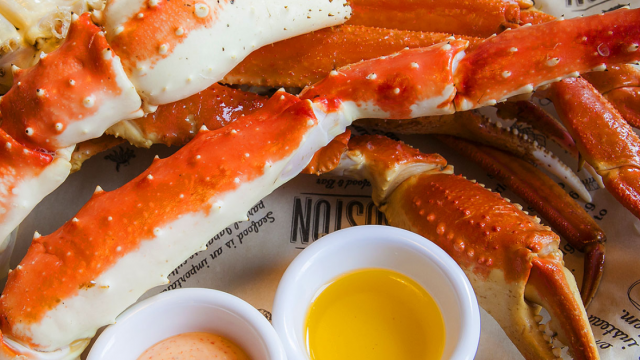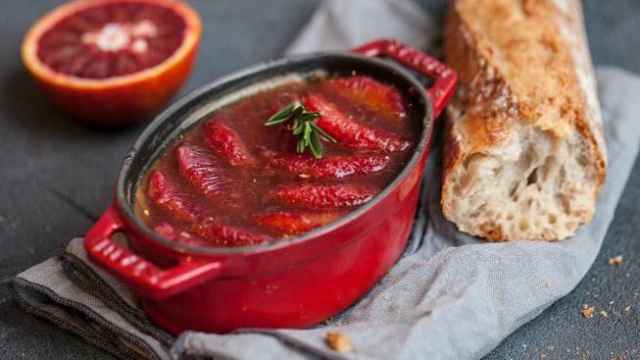Alexander Rappoport, lawyer turned restaurateur, added another restaurant to his ever-growing empire. It’s called Beluga (a type of sturgeon), and it’s located at the Hotel National, where one of his most successful restaurants, Doctor Zhivago, has been open since 2014.
Beluga is on the second floor of the National, and its large windows face the Kremlin, commanding breathtaking views. While dining, you can check out the Kremlin towers or the Arsenal building peeking from behind the walls. Or you can watch crowds milling about Manege Square.
The interior design is an updated version of 2000s glamour: large chandeliers, sturgeon caviar cans, and portraits of women in kokoshniks.
Billed as a restaurant of “Russian delicacies” as well as a “caviar brasserie,” Beluga offers almost twenty varieties of caviar. You can try salmon or other red fish caviar (from 260 rubles) or splurge on black caviar, including classic sturgeon caviar (just 700 rubles) or the most expensive varieties — Iranian beluga (4,550 rubles) and albino sturgeon (4,850 rubles). The prices quoted are for a tasting-size portion — 25 grams, served with a shot of cold Beluga vodka. You can also get a tasting set for two with three types of black caviar (sturgeon, beluga and sterlet) for 8,600 rubles.
The “delicacies” are prepared by Yevgeny Meshcheryakov, winner of the Bocuse d’Or Battle in 2014 who had worked in Rappoport’s first restaurant in St Petersburg, Blok, named after the famous poet Alexander Blok.
The “non-caviar” section of Beluga’s menu focuses on traditional Russian and Soviet cuisine, but some of the recipes have been reimagined. So the Soviet staple Olivier salad is made with slow-cooked beluga (660 rubles), while sugudai, Siberian sushi, is served with potatoes and onion spread.
From the main dishes, try Eskimo, which is more
commonly a treat of chocolate-covered ice-cream
on a wooden stick, immensely popular during the
Soviet era. Meshcheryakov gave the name to his
version of Chicken Kiev: a pounded chicken filet
covered in breadcrumbs with hot butter inside (480
rubles). Pair it with a garnish of fried potatoes with
porcini mushrooms (300 rubles). Duck with morels
and gratin is also great (880 rubles).
A Message from The Moscow Times:
Dear readers,
We are facing unprecedented challenges. Russia's Prosecutor General's Office has designated The Moscow Times as an "undesirable" organization, criminalizing our work and putting our staff at risk of prosecution. This follows our earlier unjust labeling as a "foreign agent."
These actions are direct attempts to silence independent journalism in Russia. The authorities claim our work "discredits the decisions of the Russian leadership." We see things differently: we strive to provide accurate, unbiased reporting on Russia.
We, the journalists of The Moscow Times, refuse to be silenced. But to continue our work, we need your help.
Your support, no matter how small, makes a world of difference. If you can, please support us monthly starting from just $2. It's quick to set up, and every contribution makes a significant impact.
By supporting The Moscow Times, you're defending open, independent journalism in the face of repression. Thank you for standing with us.
Remind me later.


